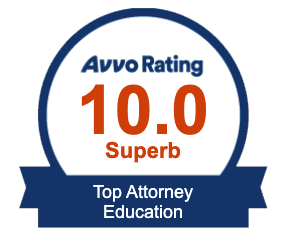Welcome to IEP season! We all know that most annual IEP meetings occur in March, April and May. There are exceptions to this rule, however, as some children have birthdays for annual review earlier in the school year and sometimes in January and February. But for most parents, you already have attended the annual IEP meeting for your child or you are hopefully preparing for it. To begin, there is no magic formula or one specific way to prepare for an annual IEP meeting and receive the best results possible. There are a few general ground rules to follow as well as tips that may help parents make the most of their child’s annual IEP meeting. It is an anxious time. Parents want to make the most of their time attending the annual IEP meeting and want the next school year to be as smooth and successful as possible. As we know, everything does not go as smoothly and successful as you may want. The good thing to know is that you can always ask for another IEP meeting at any time. Although the IDEA requires school system to hold an annual IEP meeting to revise, amend, and review your child’s IEP, the law does not limit you to just one IEP meeting a year. You can ask for an IEP meeting to review, revise and amend your child’s IEP at any time. I have represented parents who have IEP meetings almost every month. On the other hand, I have represented parents who just have one IEP meeting a year. There is no right or wrong way to do this. Whether you one or several IEP meetings during the school year depends upon the individualized circumstances of your child. The key is to monitor, assess and be knowledgeable about the implementation of your child’s IEP during the school year. If changes are needed, then you should request another IEP meeting to voice your concerns to the IEP team and hopefully have them addressed appropriately.
To make the annual IEP meeting as smooth as possible, preparation for the meeting is very important. You should review your child’s educational progress during the school year. This assumes you are receiving periodic report cards and information that shows your child’s grades as well as educational progress on your child’s IEP goals and objectives. You should have a good idea whether your child has made educational progress on the IEP goals and objectives. If not, then you want to inquire at the IEP meeting why your child has made adequate progress on the IEP goals and objectives. Sometimes it will be necessary for you to revise and change the IEP goals and objectives, remove some IEP goals and objectives, or develop new IEP goals and objectives for your child. You can develop your own IEP goals and objectives just as the school system does before the scheduled IEP meeting. You can bring your proposed IEP goals and objectives to the IEP meeting and discuss them with the IEP meeting. The goal is to reach a consensus with the other members of the IEP team to reach the best possible outcome for your child’s special educational program.
Most annual IEP meetings start off with reviewing the current levels of the child’s educational performance. I have attended IEP meetings, however, that were not well organized and the IEP tram jumped from one topic to another. My suggestion is that you should follow the outline contained in the IEP format which begins with your child’s current levels of performance. Your child’s current levels of performance is the starting place for developing the new IEP. The IEP team place much weight on the child’s current level of performance in developing your child’s annual IEP. You will find in this section of the IEP a discussion of your child’s current educational performance in terms of data, grades, test scores, assessments, and other narratives of how your child is performing at school. This discussion should cover academics, communication, behavior, social skills, and all other areas of your child’s educational needs. Again it is important to know your child’s educational needs so that you can question the IEP members about the data, scores, assessments and other information contained in this section of the IEP. I want to emphasize that you should be quite active in asking questions of IEP team members what the scores, data and assessments means? Are they standard scores, criterion referenced scores, grade equivalent scores, or age equivalent scores? Is there is a difference. Yes there is a significant difference among these type of scores and you should be knowledgeable about the difference. If not, you will not be able to challenge IEP team members on their interpretation on the data, scores and assessments. You will not know if your child has made adequate educational progress during the school year. You will not be able to propose new goals and objectives for your child, related services, accommodations, modifications, and other services, supports, interventions and strategies your child may need during the next school year to make educational progress. How can parents understand the difference among these test scores, data and assessments and what do they mean? There are a number of sources of information on how to learn what test scores means. You can read www.wrightslaw.com and find the section on how to understand test scores. There are many books, manuals, articles, websites, and other documents that will help you understand this information. I really think it is important to do this. Educators tend use alphabet soup in describing these test scores and assessments and often do not adequately explain to parents what they mean. I have attended countless IEP meetings where educators will go through the child’s current level of performance and use educational jargon and code words that only educators or those with specialized knowledge have a clue what they saying. Sometimes I have to interrupt the IEP meeting and ask the educators to explain what the test scores and assessments mean to the parents. If the parents attend the annual IEP meeting without an advocate or special education attorney, or they have little or no knowledge about tests scores, data and assessments, then discussion of the child’s current levels of performance become an empty gesture. It becomes more of a ritual and routine than an opportunity for parents to really understand what has occurred during the school year and how to assess of the child has made educational progress. Of course, if this is the parents first opportunity to attend an IEP meeting because the child has recently become eligible for special education and related services under the IDEA, then this presents a different situation. But if you already have an IEP in place for your child then you should be ready to challenge and question the IEP team’s summary of your child’s current levels of performance.
Are you getting a little blurry eyed now? Please do not get too concerned because this is a lot of information to digest. This is why special education is such a complicated and specialized field of knowledge. For most parents as well as advocates and special education attorneys, it takes years to build enough knowledge and information to ask the right questions and challenge IEP team members on a variety of subjects including the current levels of the child’s educational performance. For now, do not worry about becoming an expert in special education. It is long journey indeed. In the meantime, I will give you more ideas and suggestions on how to prepare an annual IEP meeting in the next post. Stay tuned!

